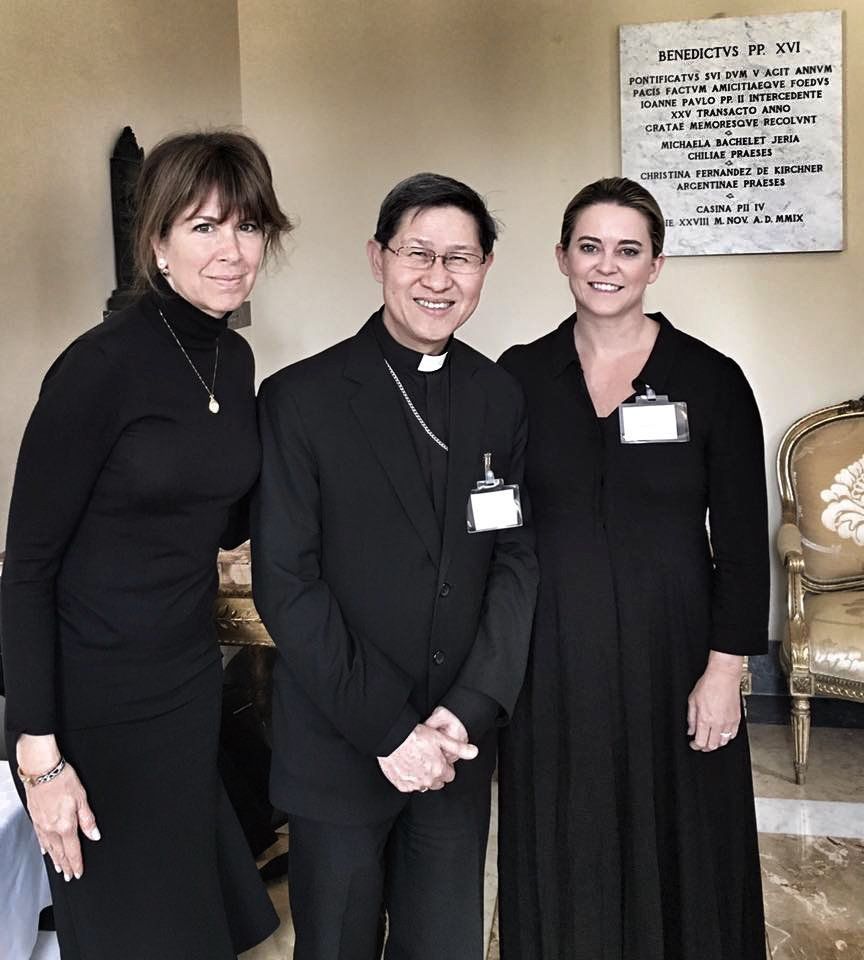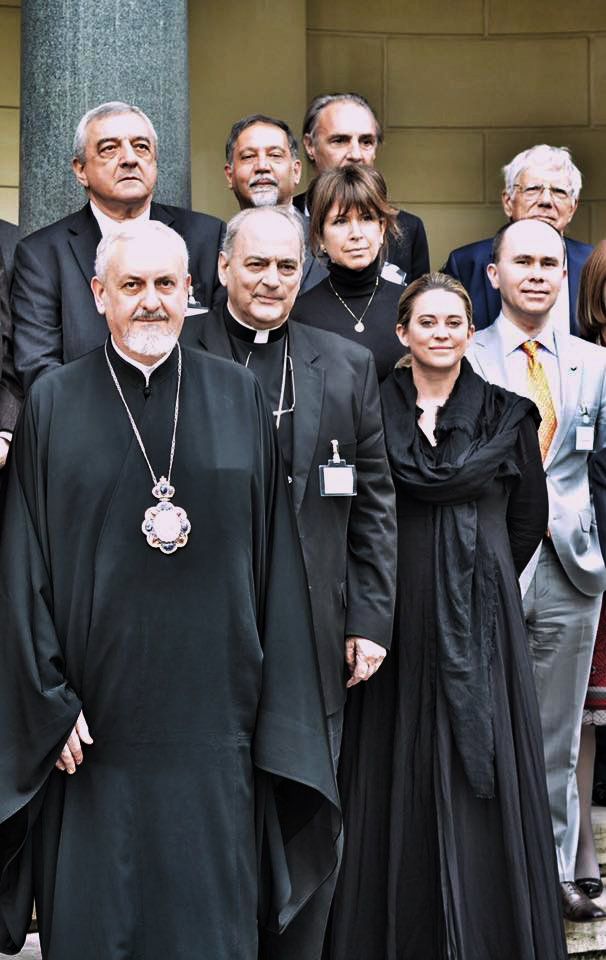Casina Pio IV, Vatican City—The Blue Chip Foundation, represented by founderJennifer Stengaard Gross, participated in the Reaffirming Global Solidarity, Restoring Humanity workshop in Vatican City’s Casina Pio IV on Feb. 22, committing to assist in the war against extreme poverty.
“At least 125 million people are in need of humanitarian assistance right now,” says Gross. “Sixty million are displaced by conflict and natural disasters. There were 880 major natural disasters over the past year, driven by climate change. It’s very clear to see what’s needed. However, the UN High Level Panel on Humanitarian Financing identified the funding gap: It’s at least $15 billion. This workshop addressed that issue and, as a result, we were able to come up with several actionable points that can help mobilize resources to help defend the identity and dignity of all people.”
The group, which included a number of Catholic and other religious leaders, as well as several representatives from non-governmental organizations, such as UNICEF, Oxfam International, and World Vision International, issued a statement recognizing that 75 percent of humanitarian needs result from war.
“The greatest humanitarian solution on the planet is the end of today’s wars and the prevention of future conflicts,” read the group’s statement, which you can read here. “Wars result from many causes: injustice, deprivation, greed and the unbridled pursuit of gain, the pathological pursuit of power, secret diplomacy, and distrust across the lines of culture, religion, class and race. Yet for all of these causes, honesty, love, mutual dialogue, restraint, and the pursuit of international law and justice can provide a solution. Ending wars saves lives, avoids humanitarian crises, obviates mass refugee movements, and saves money. It is without question the least costly and most practical form of humanitarian assistance available in the world.”
The most fragile and vulnerable communities—namely, those living in extreme poverty—are the most likely to suffer the consequences of war and climate change.


